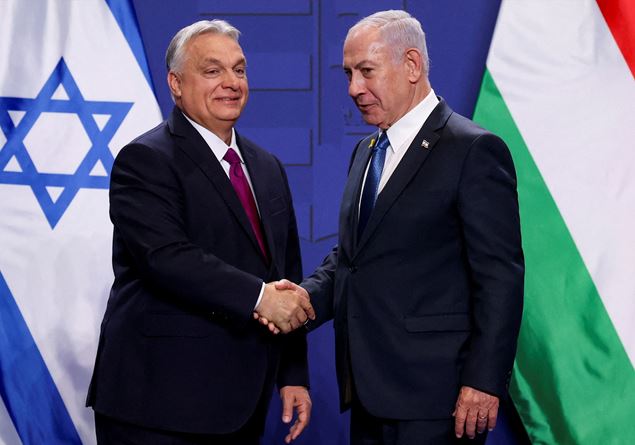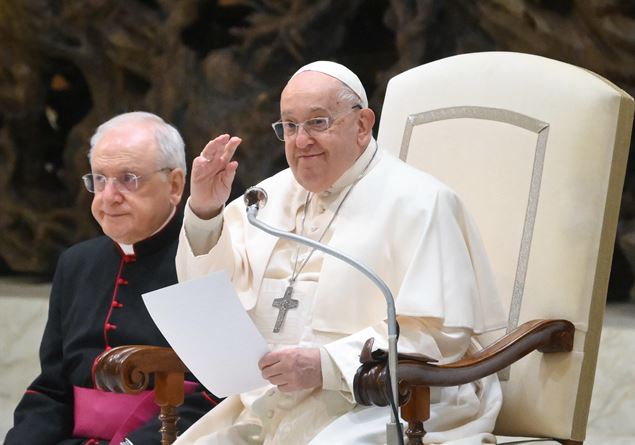The key word is “meekness”. Pope Francis starts from here to encourage journalists and communicators, in «a time marked by disinformation and polarization, where a few centers of power control an unprecedented mass of data and information» to use «gentleness and respect».
In the message for the 59th World Communications Day, on the topic “Share with meekness the hope that is in your hearts” the Pontiff starts again from personal and collective responsibility to become, in this Jubilee year, true “communicators of hope” for a “so troubled” world.
To do this you need to «disarm communication», as the Pope has repeatedly invited us to do. «Too often», is his analysis, «communication does not generate hope, but fear and desperation, prejudice and resentment, fanaticism and even hatred. Too often it simplifies reality to arouse instinctive reactions; uses the word like a blade; it even uses false or artfully distorted information to send messages intended to excite peopleto provoke, to wound.”
Reality should not be reduced to slogans, adds the Pontiff: “We all see how – from television talk shows to verbal wars on social media – the paradigm of competition, opposition, the will to dominate and possess, and the manipulation of public opinion risks prevailing.” Not to mention the algorithms that fragment “our perception of reality” and, by profiling us for fragmented interests, they undermine “the foundations of our being a community, the ability to work together for a common good, to listen to each other, to understand each other’s reasons”. YOU identify an enemy to attack, you deprive him of his face to continue insulting and mocking him.
«As Don Tonino Bello taught us», Francis recalls, «all conflicts “find their root in the fading of faces”. We cannot give in to this logic.”.
Continuing to hope is not easy. «It’s the risk of risks», as Georges Bernanos said. But, for Christians, it is not “an optional choice” nor mere optimism. Hope, to put it in the words of Benedict XVI, must live hope as «a “performative” virtue, capable of changing lives: “Those who have hope live differently; he was given a new life””.
But how do you account for hope?with meekness”? The Pontiff starts from the first letter of Peter and his words: «Worship the Lord, Christ, in your hearts, always ready to respond to anyone who asks you for a reason for the hope that is in you. However, this must be done with gentleness and respect.”. Three messages derive from this passage. The first refers to the heart and hope of Christians whose face is that of the risen Lord. “His promise to always be with us through the gift of the Holy Spirit allows us to hope even against all hope and to see the crumbs of good hidden even when all seems lost.”
The second message asks us “to be ready to give an account of the hope that is within us” by responding “to anyone who asks you”. This means that Christians «are not first and foremost those who “speak” about God, but those who reverberate the beauty of his love, a new way of experiencing everything. It is the love experienced that raises the question and demands the answer: why do you live like this? Why are you like this?”.
Finally, “the answer to this question must be given ‘with gentleness and respect'”. Following the example of Jesus of Nazareth, the “greatest communicator of all time”, who dialogued along the road with the disciples of Emmaus, we too must become traveling companions “of many of our brothers and sistersto rekindle hope in them in such a troubled time. A communication that is capable of speaking to the heart, of arousing not passionate reactions of closure and anger, but attitudes of openness and friendship; capable of focusing on beauty and hope even in the most apparently desperate situations; to generate commitment, empathy, interest in others”.
The Pope dreams of “a communication that helps us to “recognize the dignity of every human being and to take care of our common home together”.
To do this, however, we need to heal «from the “diseases” of protagonism and self-referentiality, avoid the risk of talking to ourselves: the good communicator ensures that those who listen, read or watch can participate, can be close, can find the best part of himself and enter the stories told with these attitudes. Communicating in this way helps us become “pilgrims of hope”, as the Jubilee motto states.”
A journey to take together, rediscovering and telling «the many stories of good hidden in the folds of the news», imitating «the gold diggers, who tirelessly sift through the sand in search of the tiny nugget. It’s nice to find these seeds of hope and make them known.”
The Pope invites us to «discover the sparks of good that allow us to hope. This communication can help weave communion, make us feel less alone, and rediscover the importance of walking together.” Without forgetting the heart, the inner life. What does it mean, explains Francesco, «be gentle and never forget the face of the other; speak to the hearts of the women and men in whose service you are carrying out your work. Don’t let knee-jerk reactions drive your communication. Always sow hope, even when it is difficult, even when it costs, even when it seems not to bear fruit. Trying to practice communication that can heal the wounds of our humanity.
Giving space to the trust of the heart which, like a slender but resistant flower, does not succumb to the elements of life but blossoms and grows in the most unexpected places: in the hope of mothers who pray every day to see their children return from the trenches of a conflict; in the hope of fathers who migrate amidst a thousand risks and vicissitudes in search of a better future; in the hope of children who are able to play, smile and believe in life even among the rubble of wars and in the poor streets of the favelas.”
Finally, it is the Pope’s recommendation, we need to «be witnesses and promoters of non-hostile communication, which spreads a culture of care, builds bridges and penetrates the visible and invisible walls of our time. Telling stories steeped in hope, taking our common destiny at heart and writing the story of our future together.”








